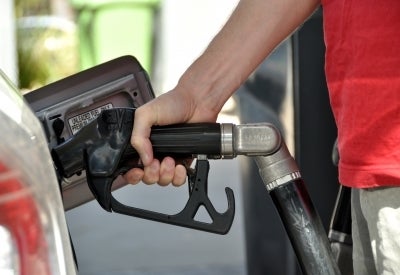Massachusetts gas prices exploded in the wake of Hurricane Harvey, surging 44 cents in one week to average $2.70 in the largest one-week spike since Hurricane Katrina battered the Gulf Coast in August 2005, according to AAA’s latest survey.
In addition to flooding southeast Texas, the hurricane knocked out Gulf Coast oil refineries and took a major gas pipeline feeding Massachusetts and the Northeast offline.
Another powerful hurricane, Irma, is moving towards the U.S. coast. While it’s too far away to specify where it will make landfall, Florida Gov. Rick Scott has already declared a state of emergency. Citing the National Weather Service, the U.S. Department of Energy reported Monday that there is an “increasing chance of seeing some impacts from Irma in the Florida Peninsula and the Florida Keys later this week and weekend.
In addition to monitoring the track of Irma, the energy department is watching its potential impacts to U.S. energy infrastructure, the agency said.
AAA Northeast said the price spike post-Harvey should be temporary.
“It’s important to remember that the high prices are not caused by gasoline supply, but by the ability to move the fuel from the Gulf Coast to the eastern seaboard,” AAA Northeast Director of Public and Legislative Affairs Mary Maguire said in a statement.
Maguire said, “As refineries come back online and the Colonial Pipeline resumes operations, those issues will eventually be resolved. We would hope and expect that these spikes are short term and prices will soon return to their traditional post-Labor Day levels.”
The average price for a gallon of gas in Massachusetts was 5 cents higher than the national average of $2.65 and 59 cents higher than Bay State motorists were paying at this time last year.
The survey found a range in pricing across the state with a gallon costing as little $2.53 or as much as $2.89, depending on where drivers stopped to fill up.
Maguire said Harvey, at the peak of impact, took out 27 percent of the nation’s oil refining capacity, and as of Tuesday she said four Gulf refineries were working at partial capacity and eight more were in the process of being restarted.
“This was really a triple whammy before the refinery shutdowns, the partial closure of the Colonial pipeline and increased demand from travelers over the Labor Day weekend. One of those obstacles we’ve now already gotten over,” she said.
The last time Massachusetts saw a one-week price spike for gasoline on par with the past week was in 2005 when the cost of a gallon of gasoline climbed 41 cents following the landfall of Hurricane Katrina.
Maguire said she “found it comforting” that the range between the lowest and highest prices for a gallon of unleaded in Massachusetts was 36 cents, which is on par with what AAA Northeast typically sees around Labor Day and not indicative of any widespread price gouging.
“To see a 36-cent range sustained we believe retailers are staying within a reasonable stand,” Maguire said. “If I suddenly saw a 60 cent or a dollar range I would be concerned. Retailers are simply trying to absorb increased wholesale prices.”
With diesel selling at an average price of $2.74 per gallon and premium unleaded averaging $3.04 per gallon,” Maguire also had some consumer advice while drivers wait for prices to level off.
“If you are using mid-grade or premium gasoline and your car doesn’t need it, by all means this is a great time to make the switch to regular gasoline which powers most vehicles just fine,” she said.

